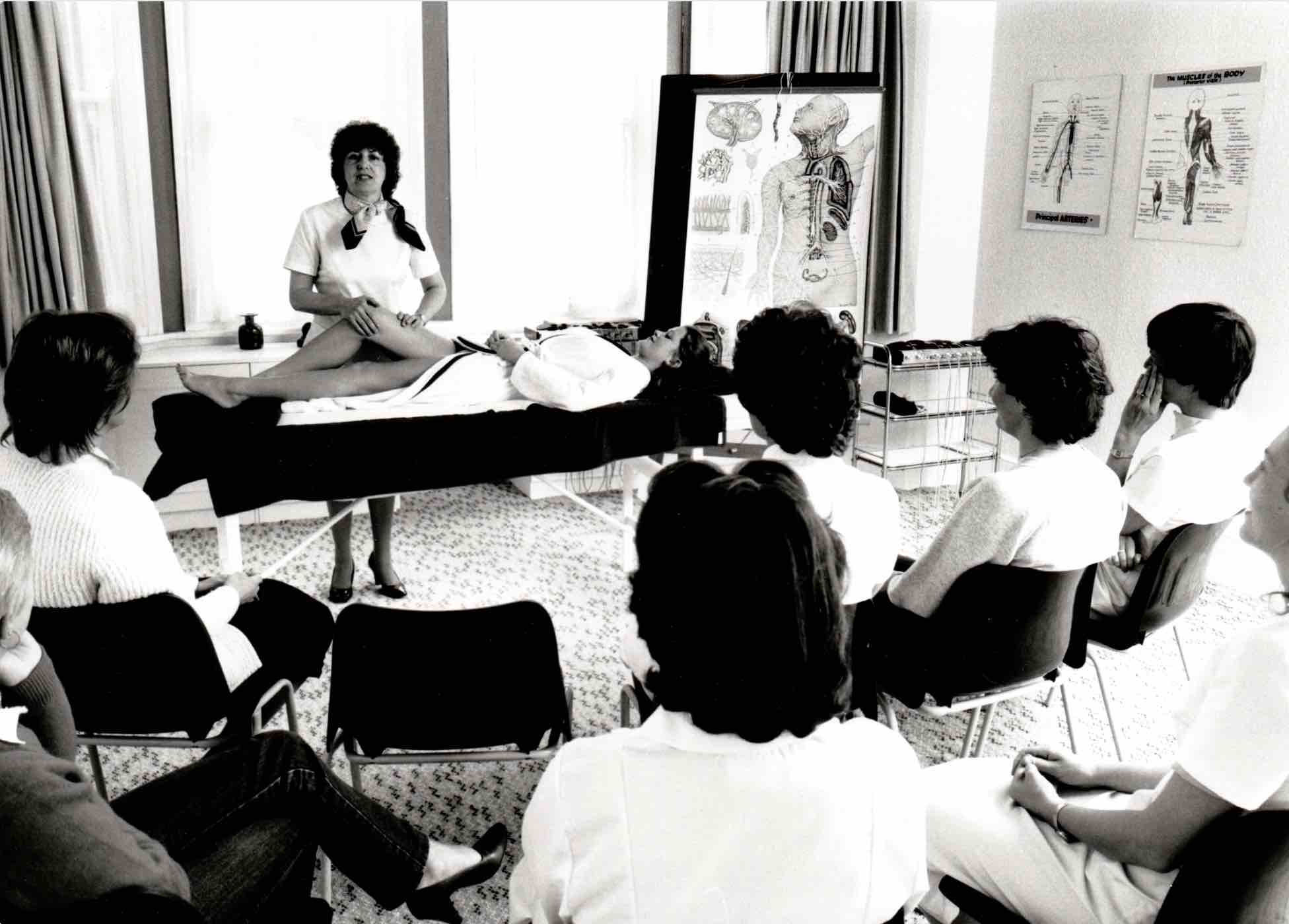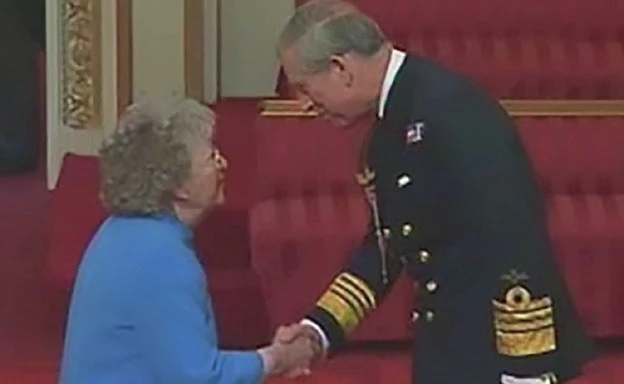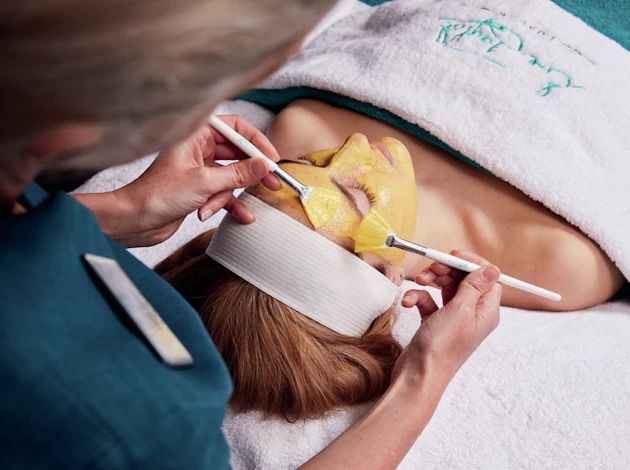Eve Taylor, founder of skincare and aromatherapy brand Eve Taylor London, has been awarded the title of Dame Commander of the British Empire for her services to business in the King's Birthday Honours.
Commenting on her damehood, Taylor said, "I am deeply honoured and humbled to receive this recognition. My journey has been driven by a passion for empowering others through beauty and wellbeing.
"This accolade is not just a personal achievement but a testament to the incredible team at Eve Taylor London and our unwavering commitment to excellence."
To celebrate Taylor's achievements, we take a look back at our interview with her from November 2022, where we asked her about how her brand has stood the test of time, how the beauty industry has changed over the years and the lessons she's learned that could help other beauty professionals.
How did you get into the beauty industry?
“I got into this business when my fourth son was about five months old," shares Eve Taylor. "I was the first Avon rep in the south of England, and I would go around selling skincare and make-up. I realised I knew nothing about what I was selling so I went up to London and did beauty training. I also trained in aromatherapy.
“There were only private colleges then so I studied privately in Baker Street. I learned and learned and later I opened my first salon in 1963 in southeast London. I called it Adam and Eve because we did men’s and women’s treatments.”
What did the beauty industry used to be like back then?
“As the salon grew, we moved to bigger premises in Sevenoaks in Kent and then later to Bromley Road. Everything was a challenge at that time – strikes, three-day working weeks – but we worked hard and I was always thinking of ways to grow.
"For example, I realised ear piercing was an opportunity because it used to be done at jewellers but I thought, 'that’s a natural fit for beauty therapy'. I ended up teaching piercing and I actually pierced the ears of Lady Diana Spencer, who later became the Princess of Wales.
“But why did I stop doing it? Because all these piercing guns then came out and you could get your ears pierced at the car boot sale! So, my advice for treatments is that when it gets murky – when just anybody can do it – get rid of it.”

Eve Taylor teaching
How did you move from salons to launching Eve Taylor London?
“I was co-chief examiner for City & Guilds for about nine years, marking papers, and I was also on the council for Babtac – I was one of the original members, then ultimately chairman and I travelled the world in that capacity, teaching.
“But all the time I was still doing aromatherapy. I absolutely loved mixing oils. I can still remember the feel of the blending and stirring. I really miss it. I got written up in a national newspaper as an authority in skin problems, so that’s how I progressed and developed the oils.
“I had begun to train in colleges, and was asked by the founder of Dermalogica and the International Dermal Institute to manufacture my essential oil blends for them into what they called ‘additives’, so anywhere therapists were using Dermalogica, they were using my oils too and that’s where the Eve Taylor brand was born really.”
What are your biggest achievements in 60 years of Eve Taylor London?
“Being awarded the OBE in 2008 was fantastic but I’m also very proud of the innovations I created through my learning. There’s such a scope in extending your skills and knowledge.
“With our aromatherapy, for example, I developed an advanced treatment, dealing with the lines of grief and trauma. Every line and every mark tells a story. I studied with a Chinese doctor and eventually I taught a course on my system of analysis – because every system of the body links up.
“Later, I began to study more about the effects of drugs on the skin and that was another great achievement. All over the world, I got write-ups about that – about how you can recognise how the skin changes when people take drugs. The skin is a mirror that reflects what’s going on in the body.”

Eve Taylor meeting King Charles, when he was the Prince of Wales
What is the biggest challenge you’ve overcome and learned from in 60 years in the beauty industry?
“The biggest challenge in my life was an extensive financial battle with a family member. It took me seven years of survival to get out of that. So, if I was to do it all again, I would formalise contracts with the people I dealt with who’ve made the money where I did the work.
"But then would I have learned so much? I’ve had such fun and I’ve learned from every mistake.
“I survived recessions, all of the strikes, which of course we’re seeing happen again now. It’s a challenge but you have to adapt. We’ve developed online training and during the pandemic we created facials in a box.
“So now, if clients can’t afford to come in every week, get out and give talks. Everybody’s got skin. I used to teach basic skincare to school leavers at nine London schools. The syllabus I taught was taken from my book ‘Face, Figure and Fashion’ which was published in 1968.
“I also lectured frequently to groups and organisations. It’s survival. OK, I didn’t get paid for doing those lectures, but 20 people left the class and at least another 40 heard about it. Communicate to one person and you communicate to three people minimum.”
What do you think of the proposed licences for beauty and aesthetics?
“I went to parliament way back in the 1960s because I wanted to see therapists insured and licensed on their qualifications. It was in the papers – I got nicknamed the Battling Beautician. I was angry because there were people doing three years’ training then others trying to practise without that.
"And that is still happening because there’s no legal minimum standard of training. There is even more need for licences now because therapists are being let loose with such powerful machines and technologies.
“The whole body is connected so you have to know the right questions to ask and make sure you ask them; regulation will help that.”

A modern Eve Taylor facial treatment
What does the future hold for the Eve Taylor brand and the beauty industry as a whole?
“I’m coming up to 91 so I don’t do much hands-on. I’d love to, I really would, but I still have a lot of ideas.
"So, I’d say the future for the brand is new product development but also maintaining and sticking strong to our values of supporting the therapist where a lot of competitors are going down the other route and focusing on retail ahead of the professional.
“I think the future of the industry as a whole needs to lie in education and therapists learning more about wellbeing because the skin reflects the body.
"Knowledge of cause and effect is essential and that is where the focus needs to come. So, if you are looking to develop your business always keep learning, never just stop at the basics.”




